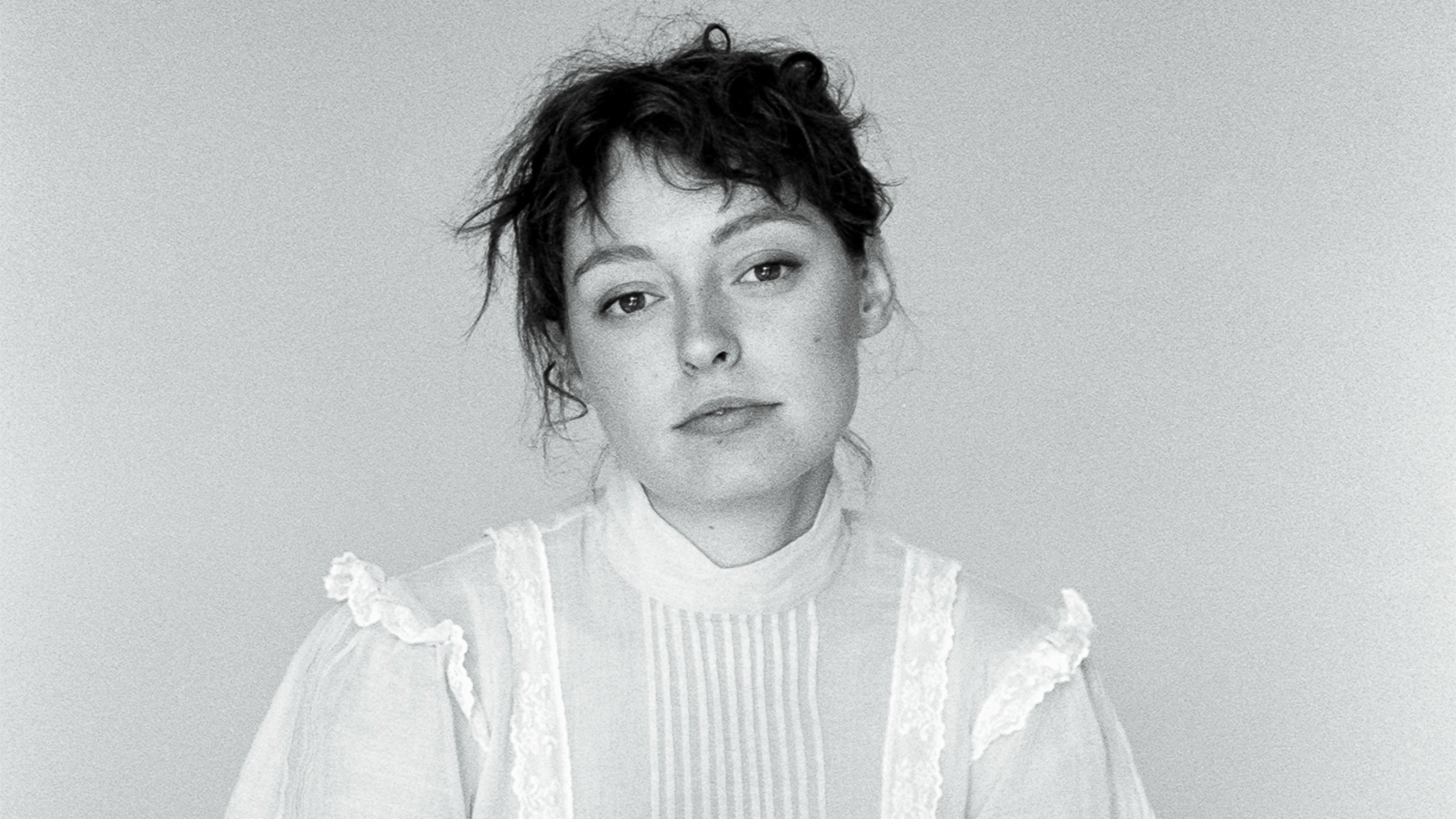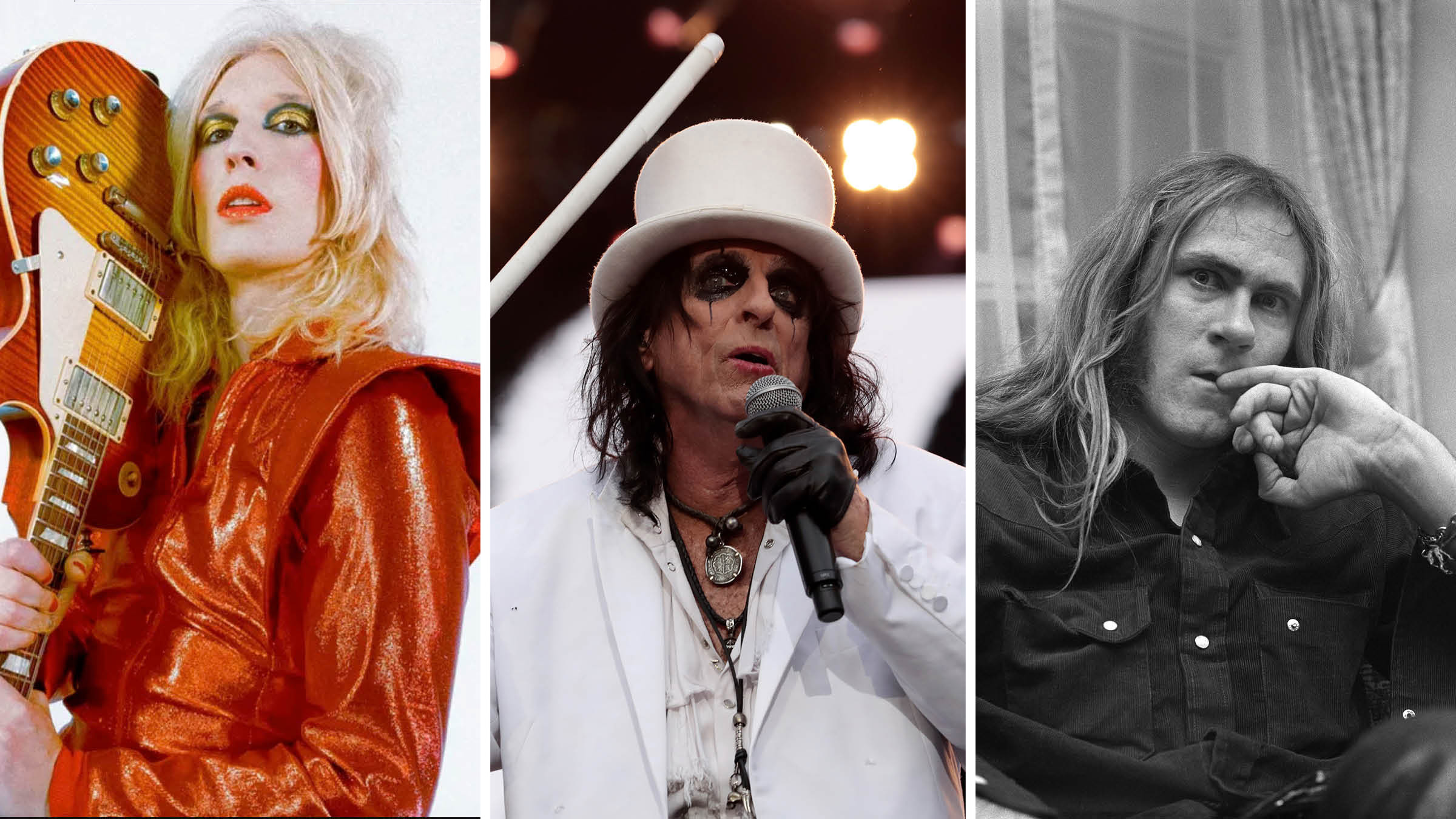Stella Donnelly: “I would find refuge in my music, rather than have it be something I felt like I needed to turn up for”
Written all over the country in a labyrinth of mental states, Stella Donnelly’s ‘Flood’ is an ambitiously deep listen. She unpacks it all for Australian Guitar

On the outset, Stella Donnelly’s inclusion in Australian Guitar #150 might seem controversial – there’s not a lot of guitar on her long-awaited second album, Flood. It’s instead mostly steered by the sharp, glassy chords of a grand piano and the atmospheric flowerings of twinkly synth-work. We’ll admit it was quite polarising to hear for the first time: ’til now, Donnelly has always been a shredder at heart, flourishing her records with passages of noodling that masterfully showed off her fretting dexterity.
Without guitars to navigate her course, though, Donnelly was freed to explore an expansive depth of new musicality. Over 11 kaleidoscopic cuts, Flood sees the Perthian songster truly embrace the pastel prettiness of dream-pop, the warming richness of a slow-burning piano ballad, and the mystifying gravitas of minimalist folk. And where Donnelly does utilise the guitar, she does so with enrapturing intent, with every tingly, twangy note cutting deep into the soul. If 2019’s Beware Of The Dogs was Donnelly’s introduction to the world, Flood is her notice of intent to take over it.
Part of its tonal breadth comes from the circumstances in which Donnelly wrote these songs, moving all around Australia throughout the pandemic. When all was said and done, she’d wound up with approximately 43 songs – a roundabout benefit, she explained in the press kit, of having “so many opportunities to write things in strange places”. On how that fed into the emotional weight of flood, she continued: “There’s no denying that not being able to access your family with border closures, it zooms in on those parts of your life you care about.”
Somewhere along the line, Donnelly wound up in the mid-northern New South Welsh town of Bellingen, where she’d escape the malaise of real life by traipsing through the rainforests and reconnecting with the natural world. In doing so, she said, “I was able to lose that feeling of anyone’s reaction to me. I forgot who I was as a musician, which was a humbling experience of just being; being my small self.”
Having returned to the high-octane life of her Big Self, Stella Donnelly welcomed Australian Guitar to wade through the minutiae of her Flood.
So, what made you want to kick things off with the piano this time around?
It wasn’t really something I wanted to do, it was just how it all happened, I guess. Where I lived at the start of lockdown, I had a piano in the kitchen, and it was just there. You know, it was just that kind of access. And you know what it’s like being in lockdown: you just get so lazy, you don’t even want to walk to the letterbox. So the idea of like getting my electric guitar, finding a lead, plugging it into the amp – I know that all sounds so simple, but when the piano was sitting right there, it was so much easier to just go for it.
And I know this is a guitar magazine, so I really want to say to the reader out there: please know that I still used guitar a whole lot on the record! I actually feel like I appreciated the guitar a lot more on the record, because I used it more as a tool than a necessity, and I used it in more interesting ways than I did on [Beware Of The Dogs]. It definitely pulled a lot more production out of me with the guitar.
All the latest guitar news, interviews, lessons, reviews, deals and more, direct to your inbox!
Having always written on a guitar in the past, did it sort of keep you on your toes, creatively, having to adapt your techniques to a new instrument and not being able to rely on what you’d always known?
Yeah, I think that’s how I wrote the songs in the first place. There was a while there where every time I picked up a guitar, I was just playing the same chord over and over again, and I was starting to drive myself a bit mad with it. And so when I sat down at the piano, it was just a whole new sound and a whole new colour of paint to work with, I guess. And you’re right, I was a lot more vulnerable, because the piano is not my first instrument. So when we went into the studio, by the time it was time to pick the guitar back up, I felt a lot more comfortable – it was really nice to come back to the guitar and allow it to tell the rest of the story I’d started telling on the piano.
That definitely comes across in the record with the way the guitar feels more... Intentional? Like when a guitar line pops up on this record, you know it’s there because it needs to be there.
Yes! And I’m so glad it translated that way, because yeah, I definitely changed a lot of my approaches to the guitar sound on this record. I tried to steer away from the really up-high octave riffs, and I tried to follow Paul Kelly’s more, you know, where it’s more like a down-low guitar sound – it’s mournful and nostalgic, and it has this kind of warmth to it, which I thinks works really well with a piano sound.
Especially on ‘Lungs’, the way everything gels together in that song is just magical.
Thank you! I got to use a fuzz pedal for the first time on that one. At the end of the song, we let loose a little bit and kind of go nuts.
Were you experimenting with a lot of cool gear in the studio?
Well the album was made across three studios, purely because of lockdowns and COVID, and needing to move around a lot during that time. The first studio we worked in was a very folk-y studio, and it had a lot of these amazing acoustic things. So I was like, “Let’s just use what we’ve got in here!” I picked up a Nashville guitar, which really blew me away – I’d never used that Nashville tuning on a guitar before, so we used a lot of that to kind of texturise the songs.
We also found a lap steel, so I used that on ‘How Was Your Day?’ to make that Flaming Lips sort of sound – the big “brrrrrrrng!” sound. I’d never played lap steel before, either, but I was like, “Yeah, let’s just try it!” I used that on a lot of the songs as well. And then we went to a different studio, later in the process, and that’s where I found my old [Analog Man] Sun Face pedal from the Boat Show days. I was like, “Alright, yeah, let’s try to utilise this too.»
I also used my baritone a lot more on this record, and tried to really get those beautiful low notes out of it for a few of the songs. I love the baritone so much. The baritone feels like a piano to me – it’s just so beautiful, with the frequencies that come out of a baritone guitar. It’s like eating a really nice, really rich brownie.
Will you be playing a lap steel on tour?
No! No way! We’ve kind of “adapted” it, and used a bunch of reverb pedals and octave pedals to try and get that sound out in a live setting. I would love to play a lap steel more, but I just don’t have one – I’m gonna have to get myself one at some point.
What about the piano? Will you be doing some sit-down, piano-and-microphone numbers?
Definitely! We’re already starting to do that with ‘Flood’ and a few of the other songs. I definitely get a little bit Elton John, kick my leg out at some point… You know, why not?
So you wrote these songs in a bunch of different places. Do you find that the kind of atmosphere you’re in can be a pretty significant source of inspiration?
Definitely. At the height of the lockdowns, I was the least productive I’d ever been, so I think going back to Fremantle – because WA wasn’t in lockdown at all – that was when all of the songs really came out of me like a like a big vomit. I think you just need to feed the [creative] beast, and when you’re stuck in the same house all day, every day, it is hard to do that. I take a lot of inspiration from humans interacting, and the various dynamics you see between people.
Is there a particular setting that just seems to unlock your inner genius?
Boredom. I think boredom is the only setting that does that, and that’s why for me, touring and writing is just not a conducive combination. I think that’s why it took me so long to do this record. And it’s a balance, because lockdown was boring, but it was a different kind of boring. So going back to Perth, I worked in a shop and I was chatting to all sorts of people, and then I would go home and I would find refuge in my music, rather than have it be something I felt like I needed to turn up for.

Ellie Robinson is an Australian writer, editor and dog enthusiast with a keen ear for pop-rock and a keen tongue for actual Pop Rocks. Her bylines include music rag staples like NME, BLUNT, Mixdown and, of course, Australian Guitar (where she also serves as Editor-at-Large), but also less expected fare like TV Soap and Snowboarding Australia. Her go-to guitar is a Fender Player Tele, which, controversially, she only picked up after she'd joined the team at Australian Guitar. Before then, Ellie was a keyboardist – thankfully, the AG crew helped her see the light…
